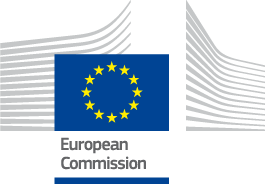Talent Gap Workshop
Informatics Europe in partnership with the European Commission’s Directorate-General for Communications Networks, Content and Technology (DG CONNECT) organised on October 30, 2019 the workshop:
“Bridging the Digital Talent Gap - Towards Successful Industry-University Partnerships”.
The event brought together higher education organisations, industry and public policy makers to reflect and act on the problem of the Digital Talent Gap in Europe.
A report presenting the results of the discussions held during the workshop can be downloaded here:
A blog post and news article on the workshop can be found on the European Commission website.
 |
 |
Context
At present, around 53% of European employers say they face difficulties in finding the right people with the right qualifications. There are hundreds of thousands of open vacancies for ICT professionals in Europe. Yet, at the same time, education providers are twice as likely as youth or employers, to consider recent graduates adequately prepared for the labour market. The demand for digital and high-end skills already exceeds supply, which in the future is expected to grow further. This talent gap is particularly striking for certain areas such as artificial intelligence solutions and data analytics, or cyber security.
Objective
The workshop brought together higher education organisations, businesses, intermediaries, public policy makers and students to identify current challenges, opportunities and solutions to bridge the supply/demand gap in Europe for graduates with the skills needed by European businesses to grow and innovate. The workshop leveraged the networks of Informatics Europe, the Digital Skills and Jobs Coalition and experience gained through the Digital Opportunity Traineeships. For example, the AI communication published in April 2018 stated that the Commission will “encourage, through the Digital Skills and Jobs Coalition, business-education partnerships to take steps to attract and retain more AI talent and to foster continued collaboration”. Cyber Security and Software Engineering were also among the areas under discussion.
Planned Results
As an outcome of the workshop, a report is going to be published, containing for example, proposals for new and amended courses; suggestions for new models of industry-academy cooperation in higher education; input to existing and future funding programmes at the European (Digital Europe Programme, Horizon Europe), national and regional level; ideas for possible increase of private-sector investments. It will be considered, whether a large consensus emerges on some key points that could be the base for a possible joint manifesto signed by the workshop participants.
Format
The workshop included:
- parallel breakout work sessions run by professional facilitators with a high degree of interactivity and participation (topics: Artificial Intelligence, Cyber Security and Software Engineering);
- harvesting and discussions; proposal for concrete actions and outcomes;
- discussion panel and keynote address;
- plan for next steps, as emerged during the discussions.
Participants
The workshop gathered up to 150 participants representing universities, industry and public institutions. Attendance for those not attending ECSS 2019 was by invitation only.
Agenda
Plenary Sessions Room: Trinita' Dei Monti
08:30-09:00 Registration and Coffee
09:00-09:15 Welcome and Opening
- Enrico Nardelli, Informatics Europe
- Fabrizia Benini, European Commission
09:15-10:10 Plenary Session "Setting the Scene"
- 09:15-09:50 Discussion Panel "The Digital Talent Gap in Europe"
Moderator: Fabrizia Benini, European Commission
Panellists:
-
- Paola Inverardi, University of L'Aquila
- Anna Wypior, SAP University Alliances, SAP SE
- Andrea Dal Piaz, Roma Tre University
- 09:50-10:10 Short Guidance for the Breakout Sessions
-
- Artificial Intelligence
- Cyber Security
- Software Engineering
10:10-10:40 Networking Coffee
10:40-12:45 Parallel Breakout Sessions (rooms: Trinita' Dei Monti / Aracoeli / Campidoglio)
Introduction and situation analysis | Brainstorming and identification of solutions in subgroups
- Artificial Intelligence (including Data Science) - Daniele Nardi, "Sapienza" University of Rome (Rapporteur)/Tanya Suarez, BluSpecs (Facilitator)
- Cyber Security (including Cyber Physical Systems and Privacy) - Javier Lopez, University of Malaga (Rapporteur)/Alexander Riedl, European Commission (Facilitator)
- Software Engineering (including Human Centred Engineering) - Gregor Engels, University of Paderborn (Rapporteur)/Alessandro Bogliolo, University of Urbino (Facilitator)
12:45-14:15 Networking Lunch
14:15-15:40 Parallel Breakout Sessions (rooms: Trinita' Dei Monti / Aracoeli / Campidoglio)
Presentation of solutions from subgroups | Merging solutions from subgroups | Synthesis and identification of actions to be presented in the Plenary Session
- Artificial Intelligence (including Data Science) - Daniele Nardi, "Sapienza" University of Rome (Rapporteur)/Tanya Suarez, BluSpecs (Facilitator)
- Cyber Security (including Cyber Physical Systems and Privacy) - Javier Lopez, University of Malaga (Rapporteur)/Alexander Riedl, European Commission (Facilitator)
- Software Engineering (including Human Centred Engineering) - Gregor Engels, University of Paderborn (Rapporteur)/Alessandro Bogliolo, University of Urbino (Facilitator)
15:50-16:20 Plenary Session "Keynote"
- Paola Inverardi - University of L'Aquila
"Ethics and Privacy in the Digital Societies: An Exoskeleton to Empower the User"
16:20-16:55 Plenary Session "The Way Forward"
- Rapporteurs and Facilitators - Presentation Key Actions from the Parallel Breakout Sessions -
- Enrico Nardelli, Informatics Europe - Closing remarks for Workshop and ECSS
16:55-17:30 Networking Drink
Venue
The workshop was held at the Hotel NH Collection Roma Centro (Via dei Gracchi, 324, 00192 Rome, Italy). The hotel is located in the heart of Rome, in the Prati/Vatican City area. The closest Metro station is Lepanto.
How to Reach the Venue
- Taxi: 33 minutes ride for around 60 EUR.
- Aerobus shuttle: Departs every 30-45 minutes and costs 6 EUR. Drop off at Stazione Termini and from there take Metro A direction Battistini for 5 stops, get off in Lepanto walk few meters. Alternatively, you can drop off at Rome Vatican (via Crescenzio, 28) and walk around 800 meters (10 minutes) to the venue.
From Train Station Termini:
- Metro A direction Battistini for 5 stops, get off in Lepanto, walk few meters.
Click here for a Rome Metro map.
By Car:
- The hotel's GPS Coordinates: 41.90977640000001°N 12.468713999999977°E
- Parking: Offsite. The parking is owned by a 3rd party and is 25 EUR/day.
For more information about public transportation in Rome and ways to reach the Conference Venue, you can visit www.atac.roma.it.